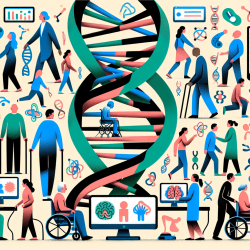The legacy of Indigenous residential schools has left deep scars on generations of Indigenous peoples. The recent study titled The Biological Impacts of Indigenous Residential School Attendance on the Next Generation sheds light on the biological consequences that extend beyond psychological trauma. This research provides valuable insights for practitioners working with Indigenous communities, offering a foundation for improving therapeutic practices and encouraging further investigation into intergenerational trauma.
The Study's Key Findings
The study conducted by Chief Moon-Riley et al. (2018) focused on understanding how attendance at residential schools has biologically impacted the adult children of survivors. The researchers explored two primary mechanisms: altered allostatic load (AL) and the transmission of intergenerational trauma through adverse childhood experiences (ACEs).
- Allostatic Load: This concept refers to the cumulative burden of chronic stress and life events on the body's physiological systems. The study found that maternal residential school attendance was associated with increased AL among adult children, indicating a moderate impairment in physiological regulation.
- Adverse Childhood Experiences: ACEs are known to have long-term effects on mental and physical health. The research revealed that both maternal and paternal attendance at residential schools was linked to higher ACE scores among their children. However, these scores did not explain the increased AL observed in children of maternal survivors.
Implications for Practitioners
For practitioners working with Indigenous populations, understanding the biological impacts of historical trauma is crucial. Here are some ways practitioners can enhance their skills based on the study's findings:
- Cultural Sensitivity: Recognize the historical context and its ongoing impact on Indigenous health. Tailor interventions to be culturally sensitive, acknowledging past traumas while fostering resilience and healing.
- Holistic Approaches: Integrate holistic approaches that consider both psychological and physiological aspects of health. Encourage practices that promote balance and wellness in all aspects of life.
- Family-Centered Care: Engage with entire families to address intergenerational trauma. Support systems that strengthen family bonds and promote healthy parenting practices.
- Advocacy for Research: Advocate for further research into the epigenetic impacts of residential school experiences. Encourage collaboration with Indigenous communities to ensure research is conducted ethically and respectfully.
The Importance of Further Research
The findings from this study underscore the need for continued research into the biological impacts of historical traumas like residential school attendance. Understanding these impacts can lead to more effective interventions and support for Indigenous communities.
The study also highlights the potential role of epigenetics in transmitting trauma across generations. While this research did not directly examine epigenetic processes, it provides a strong foundation for future studies exploring how trauma may become biologically embedded.
Conclusion
The Canadian Truth and Reconciliation Commission has called for acknowledgment of the impact of residential schools on Indigenous health. This study reinforces that call by demonstrating how these experiences affect subsequent generations at a biological level. Practitioners are encouraged to integrate these insights into their work, fostering healing and resilience within Indigenous communities.
To read the original research paper, please follow this link: The biological impacts of Indigenous residential school attendance on the next generation.










